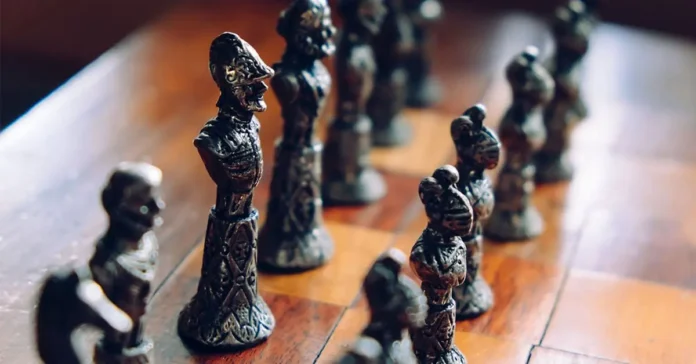Managing sentimental clutter can be challenging. It involves emotional decisions and practical steps. But with the right approach, you can effectively declutter your space. Start by sorting your items. Identify what truly holds sentimental value. This is the first step in your decluttering journey. It’s important to be honest with yourself. Not every item needs to be kept.
If your space is overwhelmed by clutter, consider a renovation. This can create a fresh start and more room for the things that matter most. During this process, think about how you can better organize your sentimental items.
Self-storage is a great option for items you can’t part with but don’t need daily. This keeps your living space clutter-free while preserving your memories. Look into box storage solutions for smaller, precious items. These can be neatly stacked and labelled, making them easy to access when needed.
Remember, decluttering isn’t about throwing away memories. It’s about creating a space that reflects what’s important to you now. With these tips, you can manage sentimental clutter effectively and enjoy a more organized, peaceful home.
What is Sentimental Clutter?
Sentimental clutter refers to items we keep because of their emotional value. These can include old letters, photos, childhood toys, or gifts from loved ones. Unlike regular clutter, sentimental clutter is challenging because each piece holds a memory or a story. While these items can bring joy and nostalgia, they can also occupy space and contribute to a cluttered environment.
Managing sentimental clutter involves balancing preserving memories and maintaining an organized, functional living space. It’s about keeping what truly matters and letting go of the rest responsibly.
1. Important Papers
There will inevitably be documents that you must save without a doubt. Wills, warranties, financial papers, tax returns for the previous five years (or seven years for complicated returns), various licenses, and insurance papers are all examples of documents you must keep in a safe place. Keep important documents in fireproof lockable boxes that you can access in an emergency, or if you are in the middle of a move, you can place those boxes in a rented self-storage unit.
You can even find ways to digitalize them and have documents stored and backed up by drives and clouds.
2. Sentimental Items
The things you enjoy are a big part of what makes life enjoyable. You may love looking at certain photos or feel nostalgic towards an item of decor, for example. The trick is to avoid turning treasured possessions into sentimental clutter.
- Photos
Scrolling through your phone’s camera roll differs from holding a treasured memory. Even if you have digital copies, keep those printed photographs (especially of family members, pets, or favourite vacations) to look through later. Keep the photos safe by organising them in albums, photo boxes, or frames. Once you have placed all your pictures in a folder or boxes, you can label them and keep them in a self-storage unit. Self storage India provides its customers with 24-hour access and top-notch security for their belongings.
- Family Heirlooms
Yes, you are downsizing your life, but do not feel bad about keeping your grandma’s old chest of drawers or dainty jewellery. Sometimes, sentimentality triumphs over practicality. Even if you never use a few keepsakes, keeping them for the memories they hold is important.
- Make a list of your belongings.
Begin by compiling a list of everything you intend to sell. Include any jewellery, clothing, books, artwork, antiques, collectables, and so on that you own. If you are not sure how much something is worth, ask someone who is. You may even discover that you already own one of the items.
Why not rent out a self-storage unit to take care of all these keepsakes? Self-storage India offers 24/7 access to its customers and top-of-the-line security of your belongings
3. Rare and Antique Pieces
Downsizing beautiful works of art that have high monetary and emotional value is difficult. Keep the pieces that speak to you the most and find creative ways to display them in your new space. When you have exhausted your wall space, give your remaining artwork to friends and family who will cherish it in a whole new way. You will also be able to enjoy it when you visit them. It is difficult to store rare and antique items without filling your living space with clutter. That does not mean you should get rid of them; they may be of some value later or that can be repurposed.
- Determine Their Worth
When you have finished your list, consider the following factors when estimating the value of each item:
- Rarity – Is it rarer than most comparable items? What distinguishes it? What is its age? Is it owned by anyone else you know? These questions assist in determining whether it is truly valuable.
- Condition – Does it need some TLC (Tender Loving Care)? Is there any damage? Is it incomplete? Is it still in good condition?
If you and your family cherish these types of precious goods, you can keep them form harm’s way in a self storage unit. The items will be kept in a safe place to which only you will have the key. You no longer need to stress about throwing them away or watch them collect dust in your home!
4. Plants
The lush flowers and foliage of indoor plants add more beauty and comfort to our homes and offices than anything else. Bedrooms, bathrooms, kitchens, workstations. There is not a room that a houseplant cannot liven up. Simply add light and water to create a growing indoor oasis. Bringing plants into your home is not only aesthetically pleasing
but can also provide significant health benefits such as:
- Boosting your mood
- Fatigue reduction
- Stress and anxiety reduction
- Improving Office Performance and Concentration
- Increasing pain tolerance and healing
- Reducing the frequency of headaches by improving air quality
- Relieving dry skin and respiratory problems caused by dry air
If you are running out of space in your home to house plants, you can either give them to your neighbours or even donate them to shelter and places to take care of them.
Downsizing and throwing away clutter can be difficult but having a set of rules to follow makes deciding what stays and what goes a little easier. We hope that this article will help in making sure that you do not throw away items you value the most but place them in a self storage unit!
Final Words for Sentimental Clutter
In the end, managing sentimental clutter is about finding balance. It’s not about discarding memories but preserving what truly matters. Take time to sort through your items, keep those that bring joy, and consider letting go of those that don’t. Use storage solutions like self-storage or box storage to maintain organization without losing precious memories. Remember, a clutter-free space can bring peace and clarity to your life. Cherish the memories attached to your sentimental items, but don’t let them overwhelm your home. Embrace the process and enjoy the benefits of a more organized, meaningful living space.
FAQs
A: Consider what truly holds meaning and brings joy. Keep items that evoke positive memories and let go of those that no longer resonate.
A: Yes, digitizing can save space while preserving memories. Scan or photograph items to create digital copies.
A: Use labeled bins or boxes to organize items. Consider dedicated shelves or a memory box for easy access.
A: Acknowledge the memories associated with each item. Thank them for their place in your life before letting go.
A: Share stories about items and involve them in decision-making. Respect each person’s emotional attachment.
A: Consider donating to charities, passing them to family members, or selling them to someone who will cherish them.
A: Regularly assess your collection, perhaps annually or during major life transitions, to keep it manageable.
A: Rotate displays seasonally or use shadow boxes to showcase items while keeping surfaces tidy.
A: It reduces physical and emotional clutter, allowing you to focus on cherished memories and new experiences.








